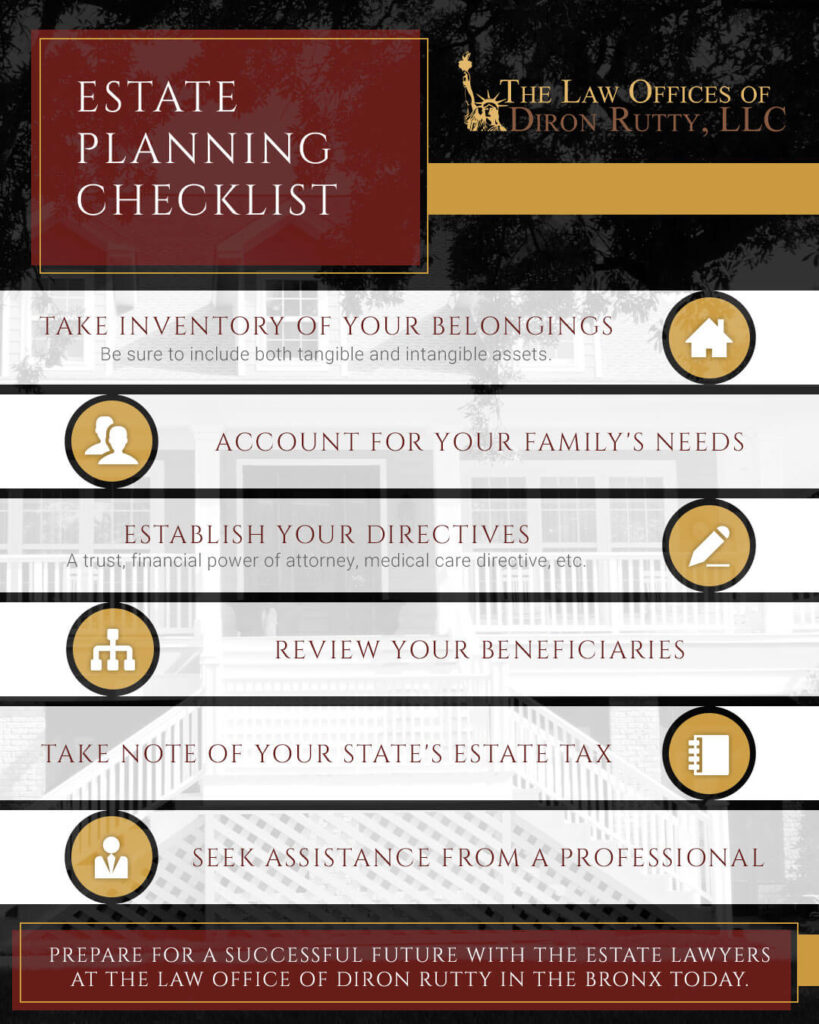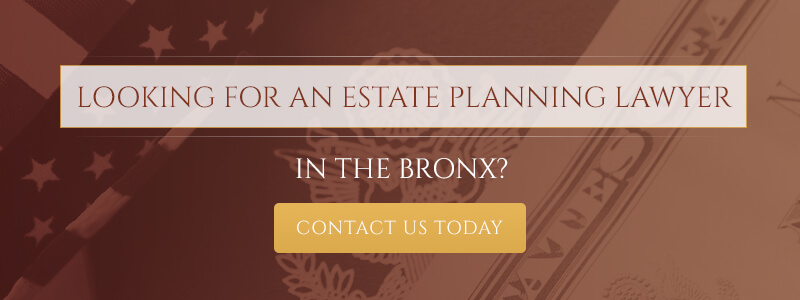Estate Planning 101: A Checklist (Part I)
Estate planning is an important step to take in order to protect your assets after you die and so you can provide them to the desired party. It also includes who is in charge of handling your responsibilities after you have passed. One of the goals of estate planning is to ensure that beneficiaries receive assets in a way that helps to minimize estate tax, income tax, gift tax, and other taxes. The key question individuals need to ask themselves as they begin estate planning is “How do I want my assets to be distributed if I die or am incapacitated?”
In today’s entry, we will be going over the key steps to estate planning in order to give you a better idea of the process. If you have any other questions and are ready to get started working with an estate lawyer in the Bronx and NYC area, give us a call at the Law Office of Diron Rutty today.

KEY STEPS TO ESTATE PLANNING
1. Take Inventory of Your Stuff
While it is common for people to think that they don’t have enough belongings to justify estate planning, once they start taking a good look around they often realize all of the tangible and intangible assets they own. Some tangible assets that are included in estate planning are:
- Homes
- Vehicles
- Collectible items such as art or trading cards
- Other personal possessions
Intangible assets are belongings that lack physical substance, and includes (but is not limited to):
- Checking and savings accounts
- Life insurance policies
- Stocks, bonds, and mutual funds
- Retirement plans (such as 401(k) plans and individual retirement accounts
- Health savings accounts
- Ownership in a business
Once you take inventory and make a list of all of your tangible and intangible assets, you will need to estimate their value. For some of your assets, you can get outsider valuations such as recent home appraisals or statements from financial accounts, but if you don’t have an outside evaluation, value each item based on how you expect your heirs will value them to help ensure that your possessions are distributed equitably among those you love.
2. Account for Your Family’s Needs
Once you have a good understanding of what is included in your estate, take some time to think about how to protect these assets and your family after you are gone. Do this by asking yourself questions such as:
- Do I have enough life insurance? This question is especially important if you are married and your current lifestyle requires two incomes. It may be even more important if you have a child who has special needs or college tuition bills.
- Who will be the guardian of my children? Be sure to name a guardian (and a back-up guardian, just in case) as you write your will.
- What wishes do I have for my children’s care? You don’t want to presume that family members will be there or that they share your same child-rearing ideas and goals. You also don’t want to assume that a judge will abide by your wishes if the issue goes to court, so it is wise to make note of this while estate planning.
Having trouble answering any of these questions? Our estate lawyers at the Law Office of Diron Rutty can assist you in answering these tough questions by breaking them down step by step, allowing the answers to become clear. Give us a call today.

To read the rest of our estate planning checklist, be sure to check out Estate Planning 101: A Checklist (Part II). And, if you are wanting to learn more from an experienced estate lawyer, be sure to give us a call at the Law Office of Diron Rutty in the Bronx and New York City area today. Our team of estate lawyers have years of experience to help you set up a secure and thorough estate plan so you are able to rest assured that you are in good hands.
